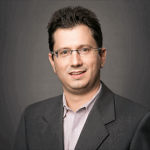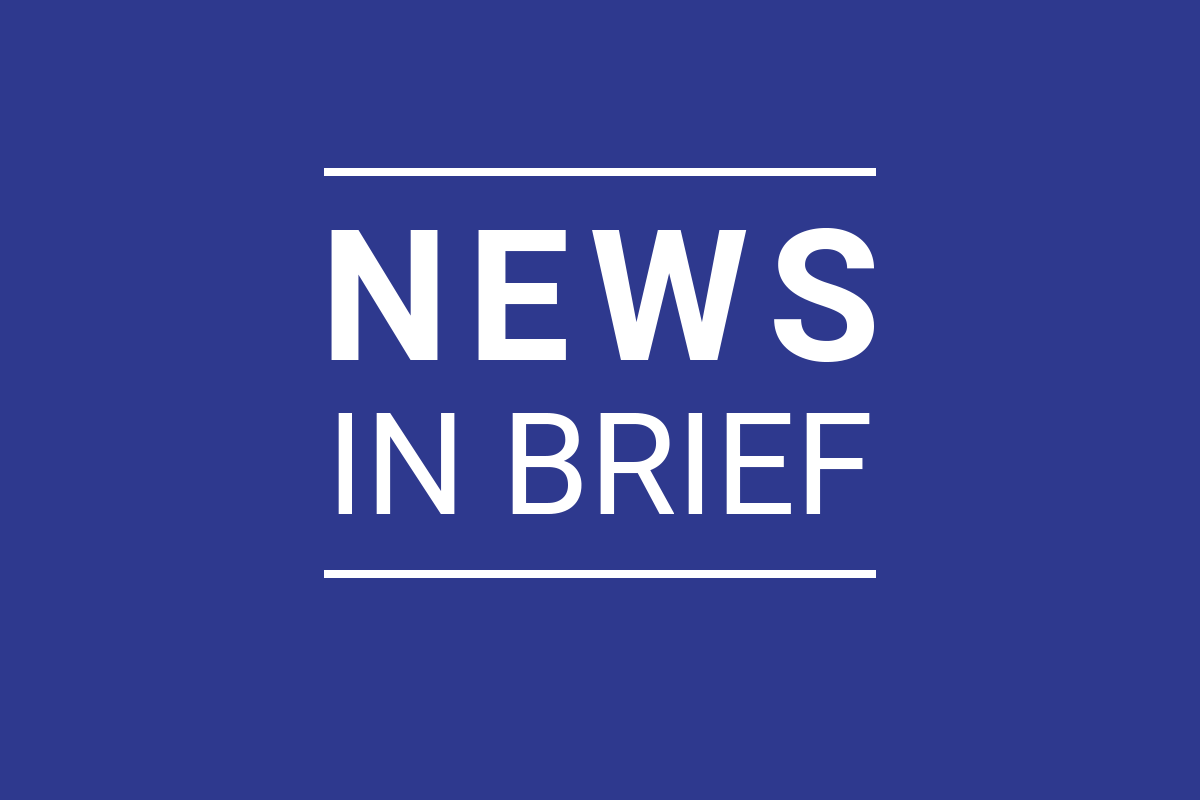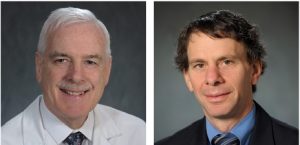
ECOG-ACRIN Names University of Washington’s and Fred Hutch Cancer Center’s Petros Grivas as its Young Investigator of the Year
June 11, 2025
News in Brief, July 2025
July 10, 2025From the Co-Chairs, June 2025


By Peter J. O’Dwyer, MD (left)
and Mitchell D. Schnall, MD, PhD
We will continue the dialogue we initiated at the General Session regarding the direction of our work in a changing and uncertain funding environment. Fortunately, our Group exists not solely as an NCI-funded entity, but also as a Foundation, funded only in part by NCI. We will have more to discuss in this regard in the next issue of this newsletter, but for now will mention two encouraging developments. The first is that the National Clinical Trials Network grant has been assigned to a review group that will meet early in the summer. The second is that the Request for Applications for the NCI Community Oncology Research Program grant, which was held up for administrative review, has been approved to go forward and is expected to be issued in late summer. It is reassuring that forward movement on the underpinning of our research has resumed.
And to further emphasize that the work must go on, a recent workshop at the National Academies in DC addressed the intersection between engineering and cancer research. The scope of engineering is broad, from molecular structural analysis and design through modeling, machine design, and large-scale data processing and interpretation. All of these areas intersect with our field. The presidents of the three sponsoring academies provided introductions to support greater interactions across disciplines. They emphasized that convergence of research interests was not merely additive, provided that there was involvement across the entire project; that engineering was relevant to cancer research from biology to diagnosis to prevention to equity. And that engineering could provide systems-based solutions to complex issues in cancer research. Examples discussed included engineering bacteria to present antigens, engineering T-cells for cell therapy and patient-specific vaccines, scan interrogation to predict cancer occurrence before presentation, and multiple approaches to high-dimensional data analysis. We would encourage you to explore possibilities of collaboration with your engineering departments in which translational opportunities may be found.
Finally, the work also goes on in the form of other significant springtime meetings: our own Group Meeting, which took place in Tampa last month, and the Annual Meeting of the American Society of Clinical Oncology in Chicago. At the ECOG-ACRIN meeting, a lively panel discussion on minimal residual disease (MRD) as a therapeutic target occurred during the Robert L. Comis, MD Translational Science Symposium. This session brought together researchers and companies advancing technology solutions for MRD detection through plasma assays, and their application in clinical trials to drive progress through innovation.
The General Session featured a variety of topics, including a preview of the secondary results from the EA1181/CompassHER2 pCR trial, recently presented by Dr. Nadine Tung at ASCO. The findings showed that pre-operative THP leads to a pCR in two-thirds of patients with early-stage HER2+ ER- breast cancer. Eventually, the study’s primary results could lead to a better understanding of which patients may be candidates for de-escalated adjuvant chemotherapy. Additional breast cancer perspective was provided by Dr. Melissa Troester, with a description of polygenic risk scores for this disease. This dovetailed with genomic advances described by Dr. George Sledge, and ultimately a discussion of AI advances with the potential to unite several sources of tumor characterization by Dr. Shaalan Beg. We were also honored to have the patient perspective brought to the fore by Mary Lou Smith and Glenn Sykes, to ground this in both study design and the doctor-patient relationship.
Also at ASCO, Dr. Ahmad Tarhini shared results from EA6194 for patients with high-risk resectable melanoma as a late-breaking abstract, and Dr. Sukhmani Padda presented results from S1900E, an ECOG-ACRIN led LungMAP substudy. EA6194 showed that treatment with pembrolizumab and vidutolimod may be an effective pre-surgical strategy for high-risk melanoma patients. S1900E revealed that sotorasib had low efficacy in patients with KRAS G12C non-small cell lung cancer with STK11 co-mutations. Read a summary of all ECOG-ACRIN research highlights at ASCO 2025.
Read the June 2025 issue here.
![ECOG-ACRIN logo[19516]275×75](https://blog-ecog-acrin.org/wp-content/uploads/2021/03/ECOG-ACRIN-logo19516275x75.png)
